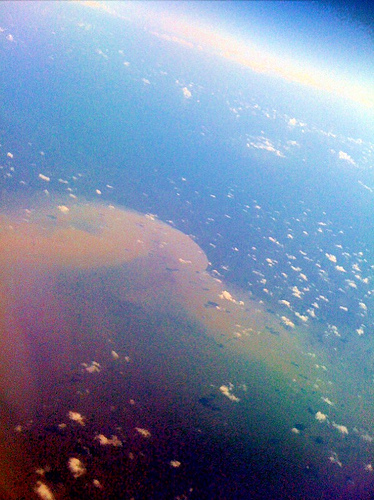The Coast Guard reports this morning that the “top-kill” of the Gulf gusher has succeeded in stopping the flow of oil and gas. When pressure stabilizes, they can begin cementing the well to permanently close it, now five weeks after the spill began.
Meanwhile, things are looking worse for BP, the operator of the rig and owner of the well. The government team assembled to evaluate the flow rate said today that preliminary findings indicate the spill is two to five times the size of previous estimates.
The investigations into the spill have also yielded a lot of bad press for BP. In Louisiana, one of the company’s officials on the Deepwater Horizon at the point of the explosion, Robert Kaluza, invoked the Fifth Amendment rather than testifying at a Coast Guard hearing. He was expected to appear today, but has backed out to avoid self-incrimination.
And according to documents released by a Congressional investigator, several days before the blast BP officials decided to use a type of casing for the well known to be the riskier option in order to cut costs. The exploration at this well was six weeks behind schedule; the Deepwater Horizon was supposed to move to a new site on March 8–about six weeks before the blast. The New York Times reports that, at an estimated cost of $500,000 per day, a 43-day-delay had added up to more than $21 million for BP by that point, possibly increasing the desire to cut corners.
Even if BP has succeeded in stopping the well, there’s still no end in site for the environmental catastrophe in the Gulf. Wildlife officials report that more than 300 sea birds, nearly 200 turtles and 19 dolphins have been found dead along the Gulf Coast.
But will Americans actually see this still-unfolding Gulf disaster? Newsweek reports today that, like our own Mac McClelland, photographers in the Gulf have been barred from access to spill sites where the impacts of the disaster are most apparent.
BP might have finally controlled the well, but efforts to control the story appear to be ongoing.
(If you appreciate our BP spill coverage, please consider making a tax-deductible donation in support.)














